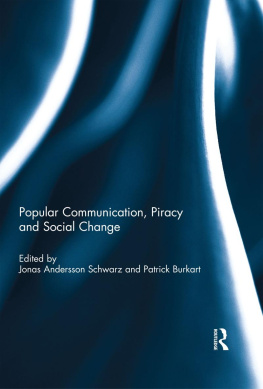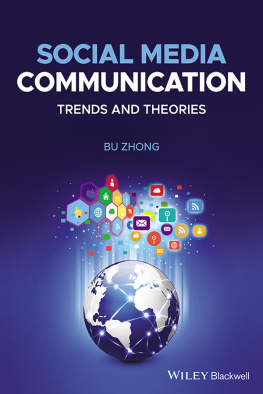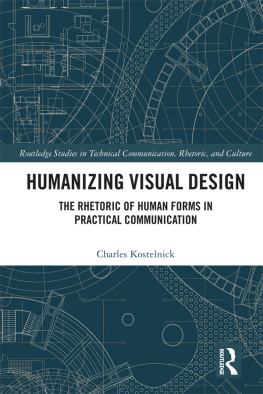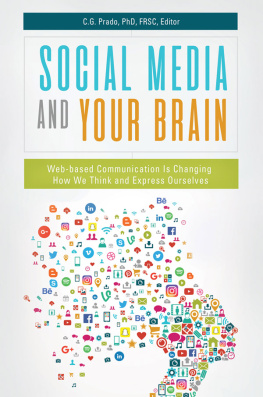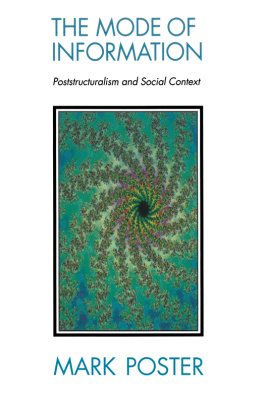Information Communication Technology and Social Transformation
This book argues that information communication technologies are not creating new forms of social structure, but rather altering long-standing institutions and amplifying existing trends of social change that have their origins in ancient times. Using a comparative historical perspective, it analyzes the applications of information communication technologies in relation to changes in norms and values, education institutions, the socialization of children, new forms of deviant and criminal behaviors, enhanced participation in religious activities, patterns of knowledge creation and use, the expansion of consumerism, and changing experiences of distance and time.
Hugh F. Cline received his Ph.D. in Sociology from Harvard University in 1967. For 20 years, he served as Executive Research Director at Educational Testing Service. Currently, he is an Adjunct Professor at Teachers College, Columbia University. His research has focused on the use of information communication technologies in complex organizations.
Routledge Studies in Science, Technology and Society
Science and the Media
Alternative Routes in Scientific Communication
Massimiano Bucchi
Animals, Disease and Human Society
Human-Animal Relations and the Rise of Veterinary Medicine
Joanna Swabe
Transnational Environmental Policy
The Ozone Layer
Reiner Grundmann
Biology and Political Science
Robert H. Blank and Samuel M. Hines, Jr.
Technoculture and Critical Theory
In the Service of the Machine?
Simon Cooper
Biomedicine as Culture
Instrumental Practices, Technoscientific Knowledge, and New Modes of Life
Edited by Regula Valrie Burri and Joseph Dumit
Journalism, Science and Society
Science Communication between News and Public Relations
Edited by Martin W. Bauer and Massimiano Bucchi
Science Images and Popular Images of Science
Edited by Bernd Hppauf and Peter Weingart
Wind Power and Power Politics
International Perspectives
Edited by Peter A. Strachan, David Lal and David Toke
Global Public Health Vigilance
Creating a World on Alert
Lorna Weir and Eric Mykhalovskiy
Rethinking Disability
Bodies, Senses, and Things
Michael Schillmeier
Biometrics
Bodies, Technologies, Biopolitics
Joseph Pugliese
Wired and Mobilizing
Social Movements, New Technology, and Electoral Politics
Victoria Carty
The Politics of Bioethics
Alan Petersen
The Culture of Science
How the Public Relates to Science Across the Globe
Edited by Martin W. Bauer, Rajesh Shukla and Nick Allum
Internet and Surveillance
The Challenges of Web 2.0 and Social Media
Edited by Christian Fuchs, Kees Boersma, Anders Albrechtslund and Marisol Sandoval
The Good Life in a Technologica Age
Edited by Philip Brey, Adam Briggle and Edward Spence
The Social Life of Nanotechnology
Edited by Barbara Herr Harthorn and John W. Mohr
Video Surveillance and Social Control in a Comparative Perspective
Edited by Fredrika Bjrklund and Ola Svenonius
The Digital Evolution of an American Identity
C. Waite
Nuclear Disaster at Fukushima Daiichi
Social, Political and Environmental Issues
Edited by Richard Hindmarsh
Internet and Emotions
Edited by Tova Benski and Eran Fisher
Critique, Social Media and the Information Society
Edited by Christian Fuchs and Marisol Sandoval
Commodified Bodies
Organ Transplantation and the Organ Trade
Oliver Decker
Information Communication Technology and Social Transformation
A Social and Historical Perspective
Hugh F. Cline
Information Communication Technology and Social Transformation
A Social and Historical Perspective
Hugh F. Cline
First published 2014
by Routledge
711 Third Avenue, New York, NY 10017
and by Routledge
2 Park Square, Milton Park, Abingdon, Oxon OX 14 4RN
Routledge is an imprint of the Taylor & Francis Group, an informa business
2014 Taylor & Francis
The right of Hugh F. Cline to be identified as author of this work has been asserted in accordance with sections 77 and 78 of the Copyright, Designs and Patents Act 1988.
All rights reserved. No part of this book may be reprinted or reproduced or utilised in any form or by any electronic, mechanical, or other means, now known or hereafter invented, including photocopying and recording, or in any information storage or retrieval system, without permission in writing from the publishers.
Trademark Notice: Product or corporate names may be trademarks or registered trademarks, and are used only for identification and explanation without intent to infringe.
Library of Congress Cataloging-in-Publication Data
Cline, Hugh F.
Information communication technology and social transformation: a
social and historical perspective / by Hugh F. Cline.
pages cm. (Routledge studies in science, technology and society; 25)
Includes bibliographical references and index.
1. Information technologySocial aspects. I. Title.
HM851.C586 2014
303.4833dc23
2013043925
ISBN13: 978-1-138-01680-4 (hbk)
ISBN13: 978-1-315-78067-2 (ebk)
Typeset in Sabon
by IBT Global.
To Hilary for her continuing support and love.
Contents
This book uses historical and sociological perspectives to examine social change in the context of the uses of contemporary information communication technologies (ICTs). It is intended to engage readers who are interested in a broad survey of how computers and networks are bringing about change in society. The book provides a historical context in which to consider the many ways that these technologies are influencing ongoing patterns of social change. In addition, this book will be useful as supplementary reading in undergraduate and post-baccalaureate courses in the social and behavioral sciences.
A website for this book will be established at the time of publication. As so many of the examples in the text refer to recent development and innovations, it will be prudent to maintain a website that will be updated on a monthly schedule to alert readers to news pertinent to the major themes of social change as influenced by ICTs.
The format and style in which this book is presented are not those usually followed in a scholarly book. Rather than using footnotes and citations of materials that are found in the mass media and the scientific literature, each chapter in the book has appended brief bibliographical notes that will identify the sources of the major materials covered in that chapter. In addition, mention of books, articles, and websites are included for those readers who might wish to pursue further some of the points discussed in the text.
This book has been prepared over a sixteen year period, and it is impossible to acknowledge my indebtedness to all the many people who have contributed to its completion. First, I would like to acknowledge the immense contributions of all the Teachers College students who since 1999 have participated in my course, Technology and Society. They have all been exposed to the intellectual content of this volume, and many have offered valuable suggestions for strengthening various drafts. In my judgment this interaction represents the most valuable aspects of the teaching and learning activities of higher education, and I thank all the students for their assistance.


